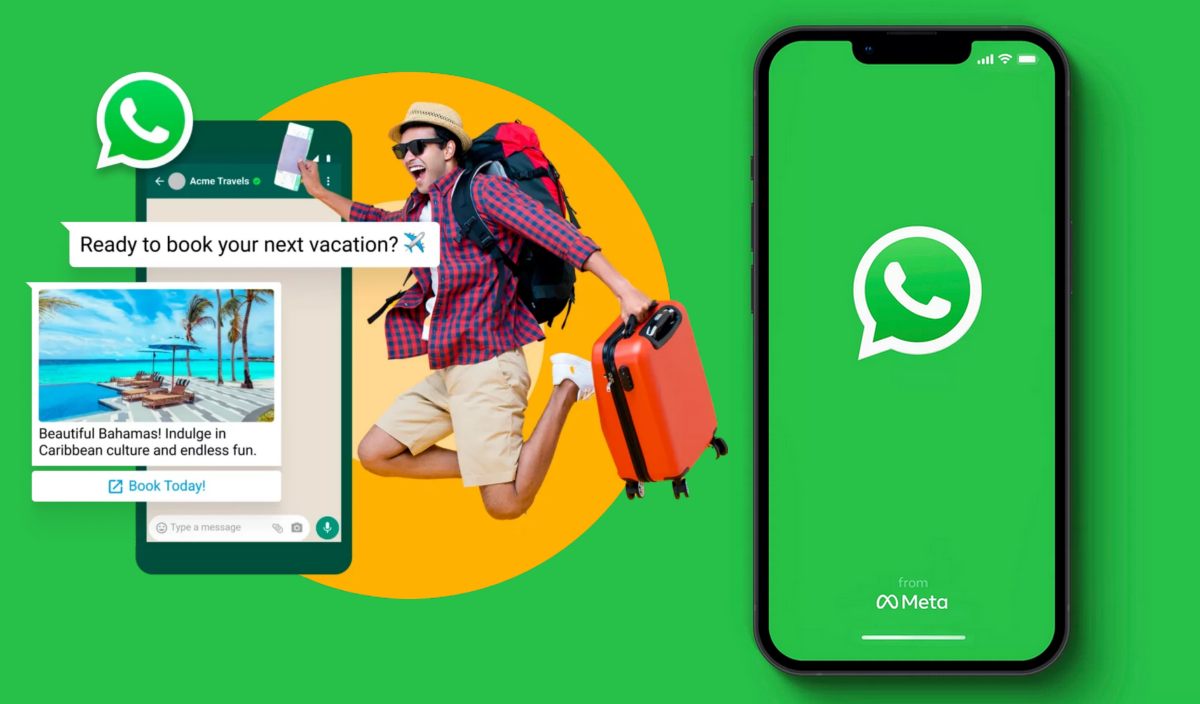WhatsApp has evolved far beyond a simple personal messaging tool — it’s now a strategic communication platform for the global travel industry. Airlines, hotels, travel agencies, and booking platforms are increasingly using it to engage with travelers directly in the environment where they already spend most of their digital time.
Recent examples illustrate this shift: London North Eastern Railway has launched a WhatsApp channel for passenger support, Air India added a virtual travel assistant to help customers manage their journeys, and HolidayPirates uses the platform to send travel tips, exclusive offers, and real-time deals to its subscribers.
Messaging as the new standard for traveler engagement
Ten years ago, Phocuswright predicted that travelers would expect personalized, real-time communication through chat. What was once an ambitious forecast is now a reality. More travel brands are using WhatsApp not just for customer service, but also for marketing, loyalty, and operational support.
Craig Goodfriend, Meta’s Head of Business Messaging for North America, notes that the app’s success lies in its seamless integration into users’ daily routines. Beyond text messages, WhatsApp enables sharing of tickets, locations, videos, and travel documents — making it a natural space for confirmations, boarding alerts, and instant support.
Conversions and loyalty through conversation
The case of HolidayPirates highlights WhatsApp’s potential as a conversion driver. Since launching its official channel in 2024, the company’s subscriber base has grown eightfold, surpassing 625,000 users. More than 4% of its total web traffic now comes directly from WhatsApp, showing an impressive return on investment.
According to Marketing Director Mila Genova, the secret is in adapting messages to the audience’s habits: “We send three to five updates a week, always keeping a balance between relevance and frequency. Most users react within minutes — engagement is almost immediate.”
From chat to AI-driven travel experience
The app’s role goes beyond marketing. At MakeMyTrip (MMT), WhatsApp supports every stage of the customer journey — from inspiration and booking to post-trip feedback. Personalized chatbots powered by artificial intelligence improve service quality, streamline operations, and strengthen customer relationships.
In Asia, WhatsApp is becoming a central business tool. Dylan Tan, founder of Replyr.ai, calls it “the king of business communication.” His company helps hotels automate guest interactions through AI-driven WhatsApp agents integrated with management systems and booking platforms. “In Malaysia, Singapore, or Hong Kong, people message hotels on WhatsApp the same way they text a friend,” Tan says. “It’s fast, natural, and efficient.”
The future: AI, integration, and smart segmentation
Meta’s long-term vision is to make WhatsApp “the best way to connect businesses and customers”. Travelers can already browse websites or book flights directly in chat, and future updates will bring even deeper integration of AI and automation.
However, as brands like HolidayPirates and Replyr.ai point out, WhatsApp still has limits — such as restrictions on audience targeting and automated workflows. Yet, these challenges encourage innovation and higher-quality user experiences.
Beyond WhatsApp: A growing ecosystem of messaging
While WhatsApp dominates globally, other apps are also gaining ground. In Japan and Thailand, LINE is preferred; in the Middle East, Telegram is growing fast; and in China, WeChat remains essential for travel communication.
Hotels and travel brands such as Marriott, Hyatt, Shangri-La, and Sheraton are experimenting with RCS (Rich Communication Services) to deliver interactive content and promotions directly to users’ phones.
A structural shift in travel communication
WhatsApp’s combination of immediacy, global reach, and emotional familiarity is transforming how travelers interact with brands.
What was once a customer service tool has become a strategic infrastructure for engagement — blending support, marketing, and personalization in one space.
In an industry moving rapidly toward hyperconnectivity, companies that master conversational platforms like WhatsApp will gain a decisive advantage in building trust, loyalty, and long-term traveler relationships.

